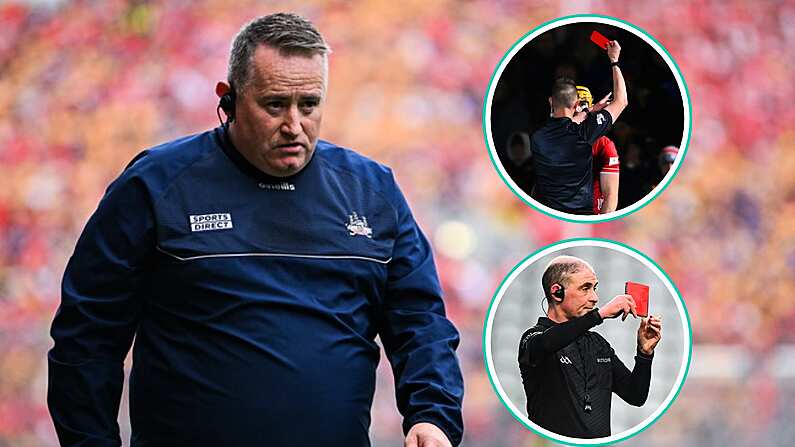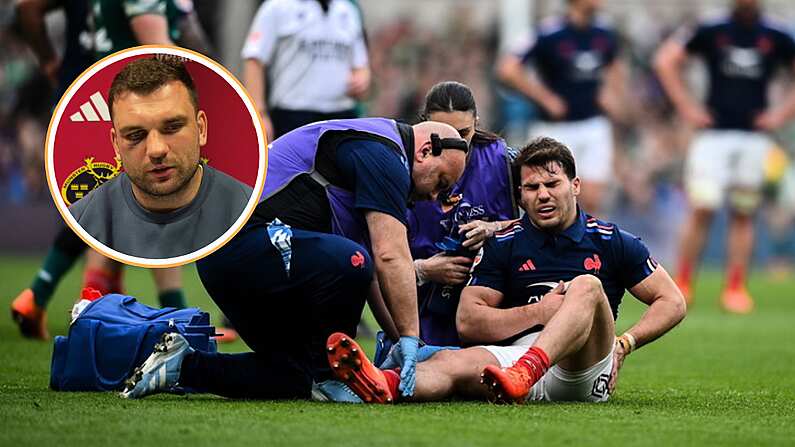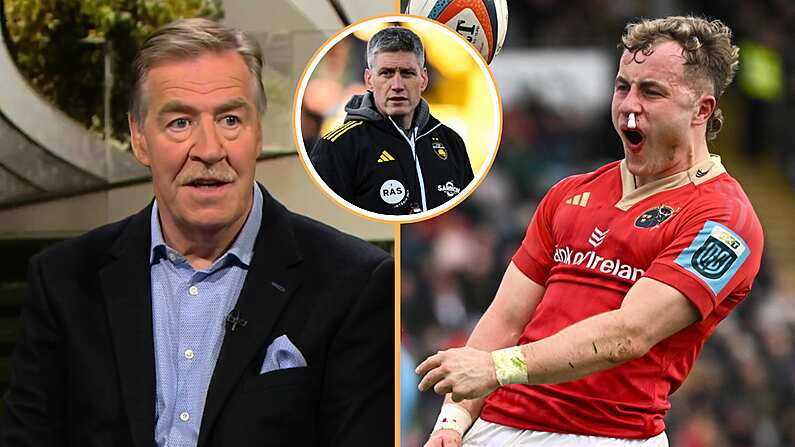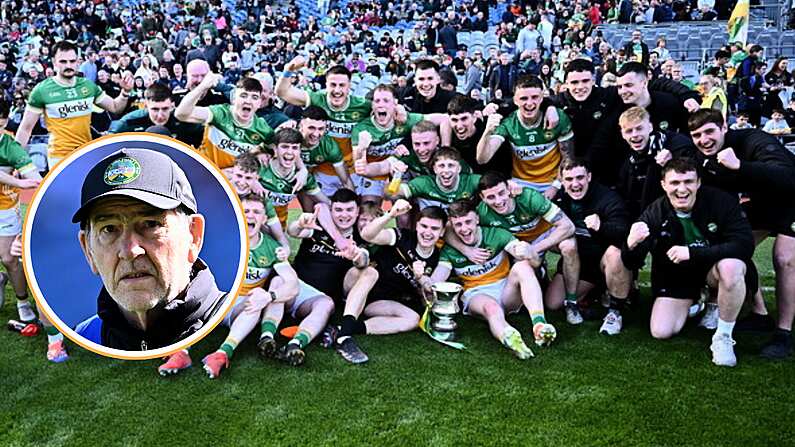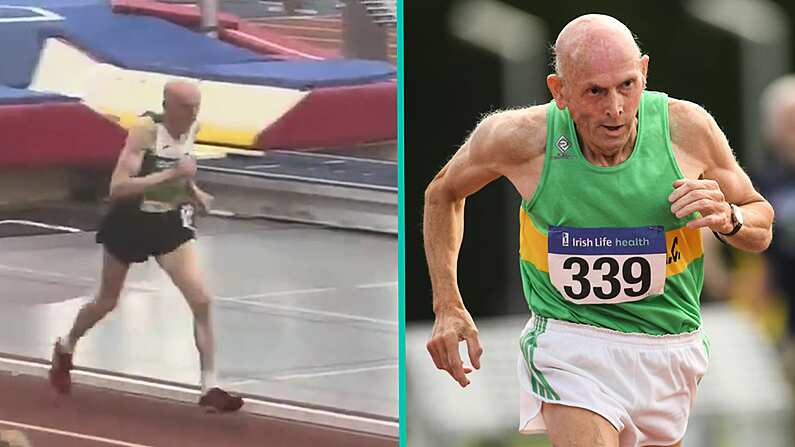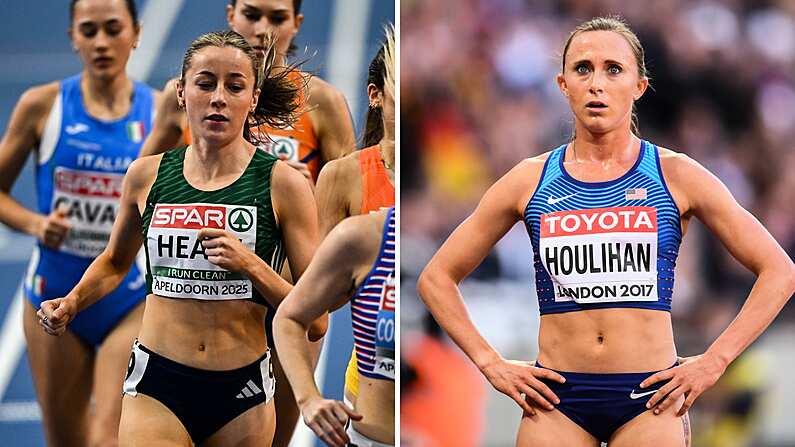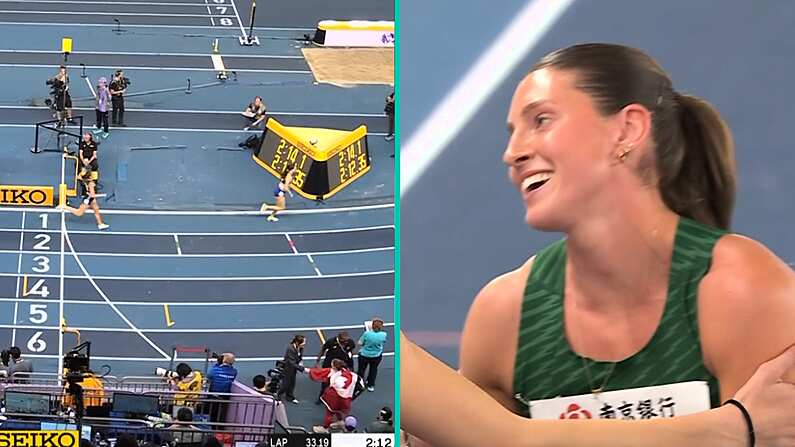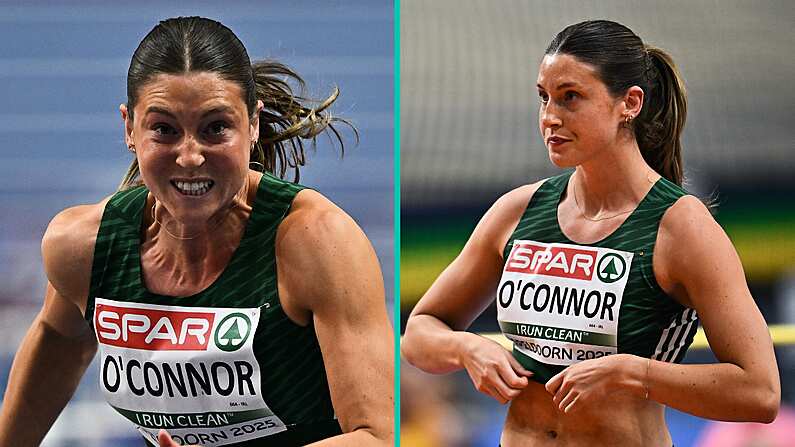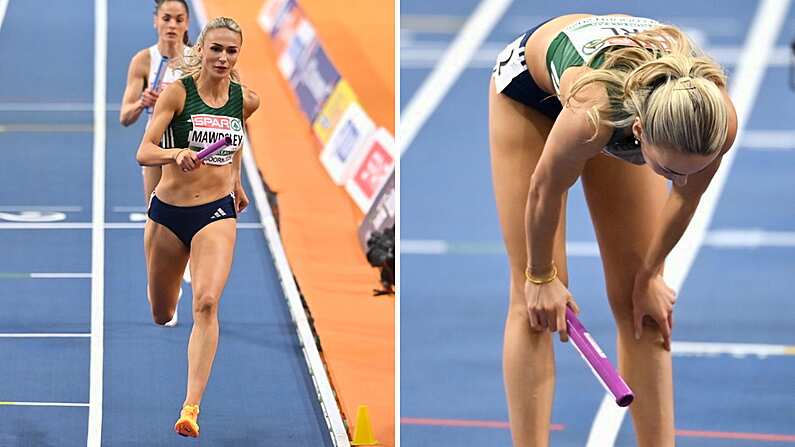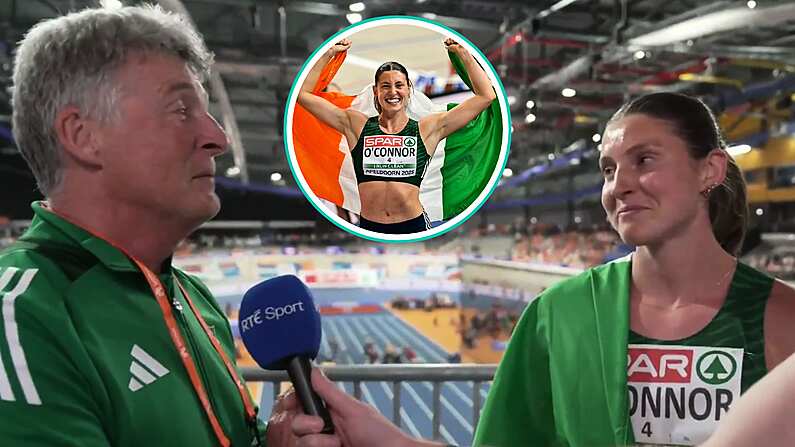Late last month, Niamh McCarthy brought Ireland’s involvement in the World Para Athletics European Championships to a close. An intense week of action in Berlin culminated with the Women’s Discus Throw F41 final, and an opportunity for Ireland to acquire yet another medal.
The kind of competitor she is, McCarthy hadn’t countenanced the possibility of anything less than gold - it duly arrived. The kind of athlete she is, a new European record was set for good measure, also.
Joining Jason Smyth (2), Noelle Lenihan, Orla Comerford (2), Orla Barry, Greta Streimikyte and Jordan Lee among the Irish medal-winners, McCarthy’s throw of 31.76 took Ireland’s medal-tally to 9, and justifiably heightened expectations ahead of next year’s World Championships in Dubai.
“There’s a lot of pressure on our shoulders, but we’re well able for it,” McCarthy believes.
“The team itself did great, and there were some newer athletes out there who got their first medal, so that was really nice, and well deserved.”
With a little over a year before the team touches down in the Middle East, attention will swiftly turn thereafter to Tokyo, and the opportunity this exceptionally promising track and field team has of leaving its mark on the grandest stage of all.
Excited by the prospect of what can be achieved over the 24 months to come, Niamh McCarthy is still left pondering one burning question however; Will anyone in Ireland even notice?
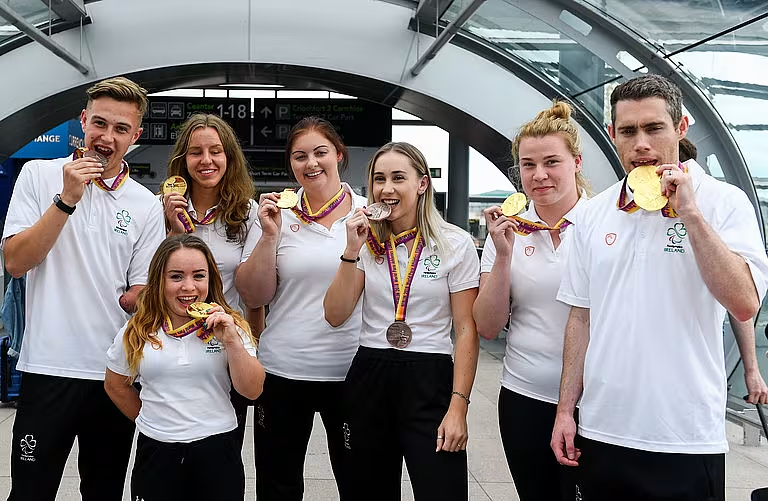
Confident that they had the ability to improve upon Ireland's showing in Grosseto two years before, medals alone are not sufficient for the success McCarthy envisages - she, and other Paralympic athletes alike, crave the respect their accomplishments deserve.
In Berlin, the Irish Paralympic team were largely left to their own devices - not one major Irish media outlet deeming it necessary to have reporters on the ground. By no means an eye-opener, this latest slight simply reaffirmed what McCarthy had come to expect.
“I was just so disappointed, but it’s the same every year, the able-bodied athletes are given more coverage than any Paralympic sport.
“I knew as soon as we got to Berlin, nobody was going to notice. With the media, they’ll always do up an article if someone wins a medal, throwing it up online after a few hours.
“There’s never anything in the moment though, and that’s just a bit crap and frustrating.”
Speaking to McCarthy, it is this experience of the here and now, an athlete in the heat of competition, that is decisively lacking in the measly coverage afforded to Paralympic sport.
In Berlin, the determined Cork woman carried out her own subtle act of rebellion.
Scheduled to compete on the final day of the championships, McCarthy did what she could with a phone and an Instagram account. Appearing at as many events concerning Irish athletes as possible, she set out to broadcast these moments to whoever would watch.
“I did what I could to fill that gap, because there were people trying to follow the team and couldn’t find any information.
“People online were directed to me then because I was the only one giving updates on what we were up to.
“My first couple of days there, I was not in a good mood. I was tired, physically and mentally exhausted, but when I realised nothing was getting put online it put a bit of fire into me.”
Not inhibited by the limitations of her admittedly lo-fi approach, McCarthy was pleased to simply give people a chance of experiencing the championships with the athletes themselves.
I really enjoyed it, and I think it was received very well. It raised my own profile, it had on impact on the media, and it gave some of the athletes people wouldn’t have heard of a bit of coverage too.
I’d be tagging everybody, and some of the Irish athletes were telling me they had just gotten a load of new followers over the course of 24 hours.
A defiant side-note to a championships that quickly became a footnote in a stellar summer for Irish sport on the continental and world stages, Niamh McCarthy is aware that her solitary fight will not be enough to change the outlook of an audience that just isn't there.
Why is Paralympic sport not taken as seriously as its able-bodied alternative? It's a question Niamh McCarthy has dwelled on, but is as yet forced to sift through some faint clues in search of an answer.
"Certain people just don’t regard it as high-level sport, which it is. People just think when you say that you’re a Paralympian that you do the odd bit here and there.
"Paralympic sport is growing in terms of people watching it and participating, but there are still people who confuse it with the Special Olympics, which is incredibly frustrating.
"They don’t understand that a Paralympian trains the exact same as any able-bodied athlete does. Take someone like Tom Barr, his training schedule is probably the exact same as some of our athletes.
"It’s hard to get the message out there that this is elite level sport. It’s not just a hobby."
Detailing the extensive planning that goes into her own training regime, the tenacious dedication mirrors that which one would usually assume with any athlete competing at the top of her field.
Opening our conversation with talk of Berlin, McCarthy's mind had already turned toward thoughts of Dubai, Tokyo and the nightmarish scheduling that would see both events take place within the same 12 months.
At 24-years-old, university, travelling (for the sake of travelling), or even socialising with friends on a Saturday night have all been put on hold while she pursues a career in athletics.
Incredibly, the success she and her teammates are experiencing as a result emerges as another possible reason behind this general indifference and misunderstanding.
"People see that we win so many medals and jump to the conclusion that, 'Oh, it can't be that hard.' That's not the point!
"Able-bodied athletes are amazing at what they do, and they have great strength and agility and everything. But, with Paralympic athletes, everybody has a story and has had their challenges.
"I think that Paralympic sport is a lot more relatable to ordinary people, but I don’t think the media understand the importance of what they could get from showing this.
"We have medals winners at every championships, amazing performances, but apparently that isn’t enough."

Cursory attempts on behalf of certain media outlets have been made to cover the success stories, of course. A chastening experience after winning a silver medal at the 2017 World Championship has stuck with the Cork Discus thrower.
After London last year, an unnamed TV programme wanted to call in here to me for a feature to put on the programme. I don’t know how many times that was request was pulled and put on again and then pulled within the space of about 15 minutes.
Eventually they came back to me and said they had about 30 seconds at the end of the show to fit me in, and I turned them down.
You can’t be saying, ‘Oh look, we’re covering Paralympic athletes,’ and then you’re giving the person 30 seconds to tell you about the medal they’ve won at a major championships. I thought it was insulting. If you want to help the Paralympic movement, you’ve got to make a proper effort.
Surely something was better than nothing? Should McCarthy simply have held her tongue and gone through with it?
This is hardly the point, however. Brief commendation and a pat on the back is not what these athletes require. Although the differentials within Paralympic sport are something McCarthy herself was not entirely aware of before she got started five years ago, even this is of secondary importance really.
Whatever of the challenges these athletes face on a personal, day-to-day basis, their status as elite-level performers competing on the world stage is unquestionable, and, as McCarthy confirms; “When you dedicate your life to something, it’s a bit sad when it goes unnoticed.”
It would be facetious to claim that Ireland's able-bodied athletes are necessarily provided with the kind of coverage that is afforded to the country's men's national football team, or a selection of inter-county GAA teams.
However, as was demonstrated this summer on RTÉ, when Thomas Barr won his European bronze medal in the 400m hurdles in Berlin, people were watching.
When the Irish women's hockey team claimed a remarkable silver medal at the Hockey World Cup in London, people were watching.
Granted, Paralympic athletes are not alone among the number of Irish sporting figures whose progression is generally relayed to the public retrospectively - if at all.
As Minister for Sport Shane Ross demonstrated only last weekend, a sporting life spent toiling under an Irish flag seemingly fails to assure even the most basic modicum of respect from those in supposed positions of authority.
For now, Niamh McCarthy remains intent on concentrating her mind toward the challenges that lay ahead - those that she can influence, anyway
"My performance is driven by me and me alone," McCarthy assures.
"People in sport need support from their friends and family around them, but they also need national support.
"I don’t mean just the odd article here or there, but it’s the continued awareness of the athlete’s journey that is important."
On her remarkable journey, Niamh McCarthy has already become a European and World medalist. It would be no great surprise if in two years time she adds a medal from the 2020 Paralympics to that haul.
She will continue to do what she does best with or without support from the country at large. Yet, she, and her teammates alike, are deserving of so much more.
Whether or not they get it is another thing. Yet, as Brecht remarked; "We pin our hopes to the sporting public."



